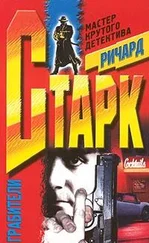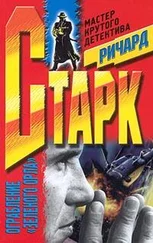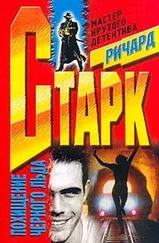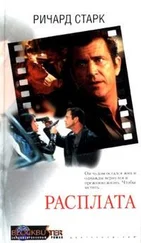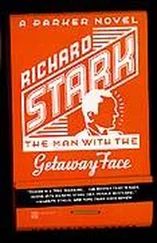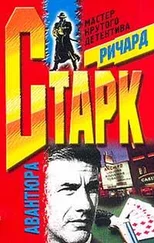The lawyer in Chicago had told him this wasn’t a rush job, but what was the point in dragging it out? Fly in, do it, fly away. “Just so it’s certain,” the lawyer had said, and he had said, “It’s certain,” because when you hired him, you hired the best. It had been certain every single time for the last twelve years.
Apparently, the client, whoever he was, had gone bargain basement the first time, brought in people who’d messed the job up, left the target alive but hospitalized. And the client really and positively wanted this target worse than sick; he wanted this target a fading memory.
He had never before had a target stationary in a hospital. And no guards on him round the clock, no steady police presence. It was almost too easy, as though he shouldn’t take his full fee for the job. Though he would. Still, it hardly seemed like work for a grown man, and he had to talk to himself as he parked the Regal on a side street three blocks from the hospital to walk the rest of the way. He had to remind himself that all assignments are serious, even if this one seemed like shooting ducks in a rain barrel. He had to remind himself that every mistake was serious and that overconfidence is the cause of more mistakes than anything else. He had to remind himself to treat this assignment just as though there might be some danger in it.
He approached the hospital catty-corner, through the parking lots. He was a tall lean man dressed all in black. One Beretta was in a holster in the small of his back, just above the belt, and the other was in his left boot. The right boot contained the throwing knife. Other than that, and his knowledge of several martial arts, he was unarmed; he never carried more weaponry than needed when on assignment.
The hospital’s main entrance and the emergency entrance around on the left side were both well lit, but the service entrance on the right was dark except for one small illuminated globe mounted on the wall above the door. He found the door unlocked — he’d have picked it if necessary — went in, and climbed one flight of concrete stairs before stepping through into a hallway. What he needed first was an operating room.
He avoided the lit-up nurse’s stations, moved through the halls, and soon found what he was looking for. And in the scrub-up room next door were several clean sets of green O.R. coats and pants. He took the largest set and put them on over his clothing; then he’d be able to move more freely along the halls, though still keeping out of other people’s way.
There had been no way to find out ahead of time what room the target was in, so all he could do was walk the halls and look at the patient names stuck into the labels outside the doors. How long could it take? Half an hour?
Less. Fifteen minutes after he entered the hospital, he came to the third-floor door labeled “Parmitt,” and without breaking stride or looking around he walked right in. Never pause and look indecisive, it attracts attention.
The target should be asleep; the knife would probably do. He crossed the dim room to the bed, starting to reach down toward his right boot, then realized the bed was empty.
Bathroom? Not away to therapy or anything like that, not at this hour. He looked around, saw the closed bathroom door, and walked around the bed.
He was almost to the bathroom when someone entered the room behind him, saying, “Doctor, we’d rather nobody touched anything in — what the hell, we can turn the light on.”
He spun around as the overhead fluorescents flickered on, and saw the rangy man in tan sheriff’s uniform in the doorway, and thought, I can be a doctor. Thirty seconds and I’m out of here.
“Whatever you say, Sheriff,” he said with an easy smile, and started toward the door.
But the sheriff was suddenly frowning. “What’s that under your scrubs?”
He wasn’t prepared for in-close observation. “Just my shirt, Sheriff,” he said, already stooping toward the boot with the Beretta in it, as he casually talked on, saying, “I get chilly at night.”
“Stop,” the sheriff said, and all at once had his side arm out and aimed, in the classic two-handed bent-kneed stance. “Straighten up with your hands empty,” he said.
He didn’t dare bend any more, but he didn’t straighten either. “Sheriff? What the heck are you doing?”
“I always hit what I aim at,” the sheriff told him. “And with you, what I’ll aim at is your knee.” Then he raised his voice, shouting toward the doorway behind him: “Reese! Jackson!”
He heard the rumble of running footsteps as he said, “Sheriff? I don’t know what your problem—”
Two uniformed deputies appeared in the doorway, trying not to look excited, one of them black, the other one white. The black, staring, said, “Sarge? Who’s this?”
“Exhibit one,” the sheriff said. His hands holding that automatic were as solid as a rock. “You two search him, see what armament he’s got on him.”
He thought: Can I go through the window? Thick plate glass, I’d either bounce off or get cut to pieces on the way out. Third floor. Three of them; what to do?
The deputies approached him, keeping out of their sergeant’s line of fire. The sergeant said, “If it happens you do have to shoot the son of a bitch, take out his legs. This one we’re gonna keep alive.”
After lunch, Leslie went shopping for Daniel, using the list he’d given her of his sizes. He had nothing, so she bought two sets of everything from the skin out, plus one pair of black loafers, and a small canvas bag to put it all in. It stretched her credit card, but he had given her a bank to call in San Antonio and a PIN, and the man there had confirmed that ten thousand dollars would be shifted to the real estate agency’s escrow account by noon tomorrow, where she’d be able to withdraw it without trouble.
Be nice to have a banker in San Antonio who’d wire you ten thousand dollars whenever you felt like it. Be nice to understand Daniel Parmitt, too, but she doubted she ever would.
Done shopping and with the canvas bag in the trunk of her car, she next showed seven condos to a couple from Branson, Missouri, who didn’t like any of them, and when she got back to the office Sergeant Farley was there, the sheriff from Snake River.
She’d been expecting this, she having been Daniel’s only visitor in the hospital, but it still frightened her when she saw the man standing beside her desk in his crisp tan uniform. It made her tense up, suddenly unsure of her ability to deceive him.
“Why, Sergeant,” she said, smiling, coming boldly forward, “what brings you here?” Then, affecting sudden concern to hide her nervousness, she said, “Has something happened? Is Daniel all right?”
“Something happened, okay,” he said, and gestured at the client chair beside her desk. “Okay if we sit for a minute?”
“Of course. Do.”
She was aware of the other reps throwing little surreptitious glances in this direction, but they were the least of her worries. She’d intended to bring Daniel his new clothes after writing up this afternoon’s wasted work, but did she dare, with Sergeant Farley around?
They sat turned toward one another, and he said, “To come right out with it, Parmitt’s gone.”
She acted as though she didn’t understand. “Gone? You don’t mean — no. I don’t know what you mean.”
“He left the hospital last night,” Farley said.
“But how could he? He’s so weak.”
“We figure,” Farley said, “somebody gave him some help. I was wondering, would that be you?”
“Me?” Don’t overplay this, she told herself. “He never asked me,” she said, then frowned at the papers on her desk as she said, “I don’t even think I would. He shouldn’t be out of the hospital, he’s too sick.” Then she looked at Farley again, saw him coolly watching her, and said, “He shouldn’t be anywhere else. Are you looking for him?”
Читать дальше
![Ричард Старк Flashfire [= Parker] обложка книги](/books/420691/richard-stark-flashfire-parker-cover.webp)
